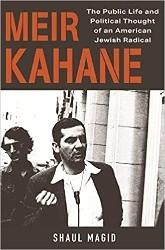Forty years after her death and fifty years after the publication of Eichmann in Jerusalem, Hannah Arendt remains a central but controversial figure in the analysis of the Holocaust. Once again brought into the spotlight by Deborah Lipstadt’s 2011 book on the Eichmann trial and the recent film by German filmmaker Margarethe von Trotta based on Arendt’s reporting on the trial and the subsequent furor surrounding her provocative thesis, Arendt’s ideas have been subjected to new debate. What did she mean by “banality of evil”? Was she too easy on Eichmann, taken in by his professions of being merely a cog in the wheel of the Nazi bureaucracy? Was she too hard on the victims of the Holocaust? What is her legacy as a thinker about the Holocaust?
This collection of interviews — one in a series of “Last Interviews” with prominent cultural figures — provides only partial clarification of some of these questions. Two of these interviews, dating from the period after the publication of her Eichmann book (with German journalist Günter Gaus and historian Joachim Fest), directly address the controversy. The others range over topics from Arendt’s oeuvre on totalitarianism and freedom — her philosophical ideas, as it were, although she rejected the label of philosopher — as well as topics of moment in the late ‘60s and early ‘70s (the student revolution, Watergate) with occasional references to the Eichmann book
In Arendt’s view, many of her controversial propositions about the Eichmann trial were misunderstood. She categorically denies to Gaus that she “reproached” the Jewish people for their non-resistance to the Nazi killing machine, claiming that she was paraphrasing the remarks of “Mr. Haussner” [sic], the Israeli prosecutor. On the definition of “the banality of evil,” the subtitle of her book on the trial and her most controversial idea, Arendt argues that she did not mean to equate banality with the commonplace, but, in a rambling answer to Fest, she fails to clarify what she meant — coming to what seems to this reviewer a banal conclusion herself that banality consists of “simply the reluctance to ever imagine what the other person is experiencing.” More cogent is her discussion with Fest of complicity in a totalitarian society, but, given the nature of these kinds of conversations (even as edited as they are), the conclusion seems elusive. In the “Last Interview,” a 1973 talk with French journalist Roger Errera in the year before she died, Arendt maintains that her Eichmann book offended the Jewish people because she refused to see Eichmann as a demonically evil man but rather as a buffoon, which sums up the crux of the issue and defines Arendt’s controversial position in the ongoing debate.
Related Content:
- Reading List: Hannah Arendt
- The Eichmann Trial by Deborah Lipstadt
- Reading List: Holocaust
- Essays: On the Holocaust





